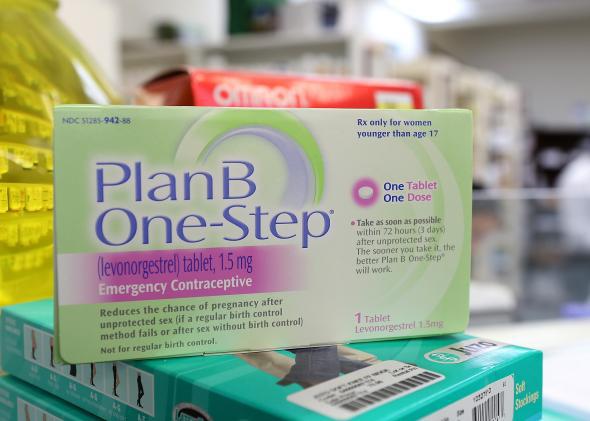In today’s Hobby Lobby ruling, the Supreme Court decided that closely held corporations can be exempt from including full coverage of birth control in health insurance packages if it conflicts with corporations’ religious beliefs. It’s a victory of sorts for any religion that opposes a basic medicine that prevents death and disease, creates more stable families, results in fewer abortions, and fosters better opportunities for women.
But for any employer who wants to reap the benefits of a healthy and productive staff, offering access to a full range of birth control is a no-brainer. Historically, childbirth limited women’s opportunities to contribute to the workforce at all. Pregnancies, especially unplanned ones, tied them into marriages, motherhood, and caring for the home. For millennia, women have tried to prevent or limit pregnancies with weird methods like honey or crocodile dung. Barrier methods were more successful, but not always reliable. Hormonal birth control pills were invented in the 1950s and became widely availability in the ’60s and ’70s, ushering in an age of safe and effective contraception. Emergency contraception and IUDs—the specific forms of birth control at issue in the Hobby Lobby case—have since expanded women’s access and agency in the contraceptive decision.
Modern contraception means that—just to start—women are now more capable of surviving beyond puberty. Rates of death during childbirth or resulting complications have drastically decreased in the last century, thanks in large part to contraception. One estimate suggests that in 2008 alone, access to contraception prevented more than 272,000 maternal deaths in 172 countries, and that more widely available access to contraception in those countries could save another 104,000 lives. The sheer number of lives the birth control pill has saved qualifies it as a massively successful preventative medicine. It’s also great at what it’s designed to do: It’s 99 percent effective in preventing childbirth. Ninety-nine percent! Birth control has other medical benefits, too: The Centers for Disease Control and Prevention reports that it lowers rates of pelvic inflammatory disease, ovarian cancer, ovarian cysts, breast cysts, and menstrual cramp pain. That makes for healthier women and more efficient employees.
Birth control also means that more women are avoiding childbirth in their teenage years, increasing the chances they will go to college and graduate on to successful careers. A 2007 study found that access to contraception leads to a 12 percent increase in the likelihood of a woman going to college. Before the pill, 35 percent of college students were women, and the numbers have been climbing steadily ever since. Women now make up 57 percent of college students. Delaying childbirth is also associated with better chances of employment and increased earning power—good for employees and employers alike.
Best of all, these economic incentives are not inconsistent with many conservative religious imperatives. Because contraception allows women to control family planning before they become pregnant, the availability of birth control has helped lower rates of abortion in the United States. And according to the CDC, emergency contraception may decrease the risk of pregnancy after unprotected sex by 74 percent. There’s also evidence that access to contraception builds stronger families. Delayed childbirth is correlated with happier relationships, while unplanned pregnancies are associated with increased relationship stress. The pill affects the health of children, too: Children resulting from unwanted pregnancies tend to have decreased cognitive development and are less likely to complete high school or go to college. The Supreme Court has decided that certain employers aren’t legally required to offer the full range of contraception coverage to their employees, but there are plenty of reasons to just do it anyway.
